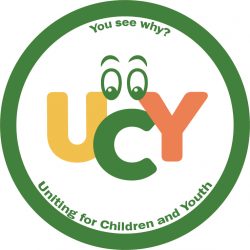Question 2 – Zone 2 Response
Contents
-
-
- The Question in brief
- Response from:
- Waleed Qirbi
- No Responses
-
Link: See Responses to Question 2: Parts 1 – 6 for a table summary of the first 6 parts of Question 2.
The Question in Brief
There are 8 parts to this question. “Yes” or “No” answers were required for the first 6 parts, but candidates were welcome to qualify their answers. Part 7 required a prose answer, and part 8 was optional. In brief, the question asked the following. The full text of the question is found at: Question 2 – Systemic Innovation.
- Do you believe that public education needs to evolve from its industrial management practices to ones more appropriate for today? Y/N
- Do you agree that formal scheduling is a major barrier to systemic innovation? Y/N
- Would you act to establish an OCDSB Systemic Innovation Advisory Committee made up of student, parent, teacher, administrator, ministry, university professor, business and community representatives? Y/N
- If “Y” to #3, would you act to have the committee established in time for systematic field studies to begin in September 2019? Y/N
- Would you support developing a board wide inventory of innovative actions by teachers and principals? Y/N
- Would you help to create partnerships with universities that want to conduct studies of how school boards can transition from the industrial model to one that suits today’s needs? Y/N
- What is your vision of the ideal school?
Waleed Qirbi
- Yes.
- No. I believe that the formal scheduling is a necessary requirement in early age education, and a reality for our schools. This being said, I am a believer in extra-curricular activities beyond the classroom, and see the need for the Communityas a hold to be involved in the development of our Youth.
- Yes.
- Yes.
- Yes.
- Yes.
- What is your vision of the ideal school? From my perspective, the “ideal school” is one that allows every student to reach his or her full potential upon graduation. The process of education is not a straight path for most, but involves the daily, weekly, and even life changing challenges that shape our lives. Most of us experience the same crises during our education, but almost never in the same form or expression.
The “ideal school” would be one in which students are encouraged to learn at their own pace and have free expression of thought without penalty. The concept of “thinking differently” should not appear as a negative thing; and, this is something that has been proven through the educational experiences of such great minds as Einstein, Darwin, and Isaac Newton would never have revealed the potential of these great thinkers.
Essentially, my vision of an “ideal school” would include opportunities for students with specific “gifts” or “talents” to have their skills mentored by those with expertise in the same field. I feel that the general public of “graduates” or “experts” has a duty to provide mentorship to schools in the same way we are now requiring Community Service from the Students of our schools. I believe that we can make our schools better by working with Academia to develop better, and possibly more effective teaching methods. We should not remain stuck in the 20th Century’s way of thinking, as the Challenges of the 21st Century are clearly built on the failures of our own way of thought.
We should always work for something better, and by looking for ways to improve, we will achieve own aims, together. It should be clear that my view on the educational system is that it can be improved, and that we need to work together to find ways to optimize a system that is often archaic, and full of opportunities for improvement. I am a strong believer that we can foster a better “community of learning” by building linkages between levels of learning (Elementary, Secondary, and University), and the establishment of learning centres, or perhaps even cross-level linkages to resources, to make the learning process better for our Youth. Our aim should be to promote the optimal environment for everyone in the educational system, and allow all students to flourish through their growth.
8. SUPPLEMENTARY QUESTION: I like this concept, and believe in fostering partnerships between University Academia and Secondary School Faculty for a starting point to greater linkages in the future.
No Responses
– Christine Boothby
– Adam Grodinsky

